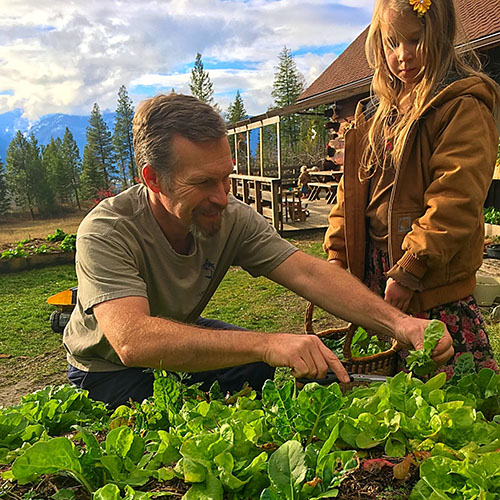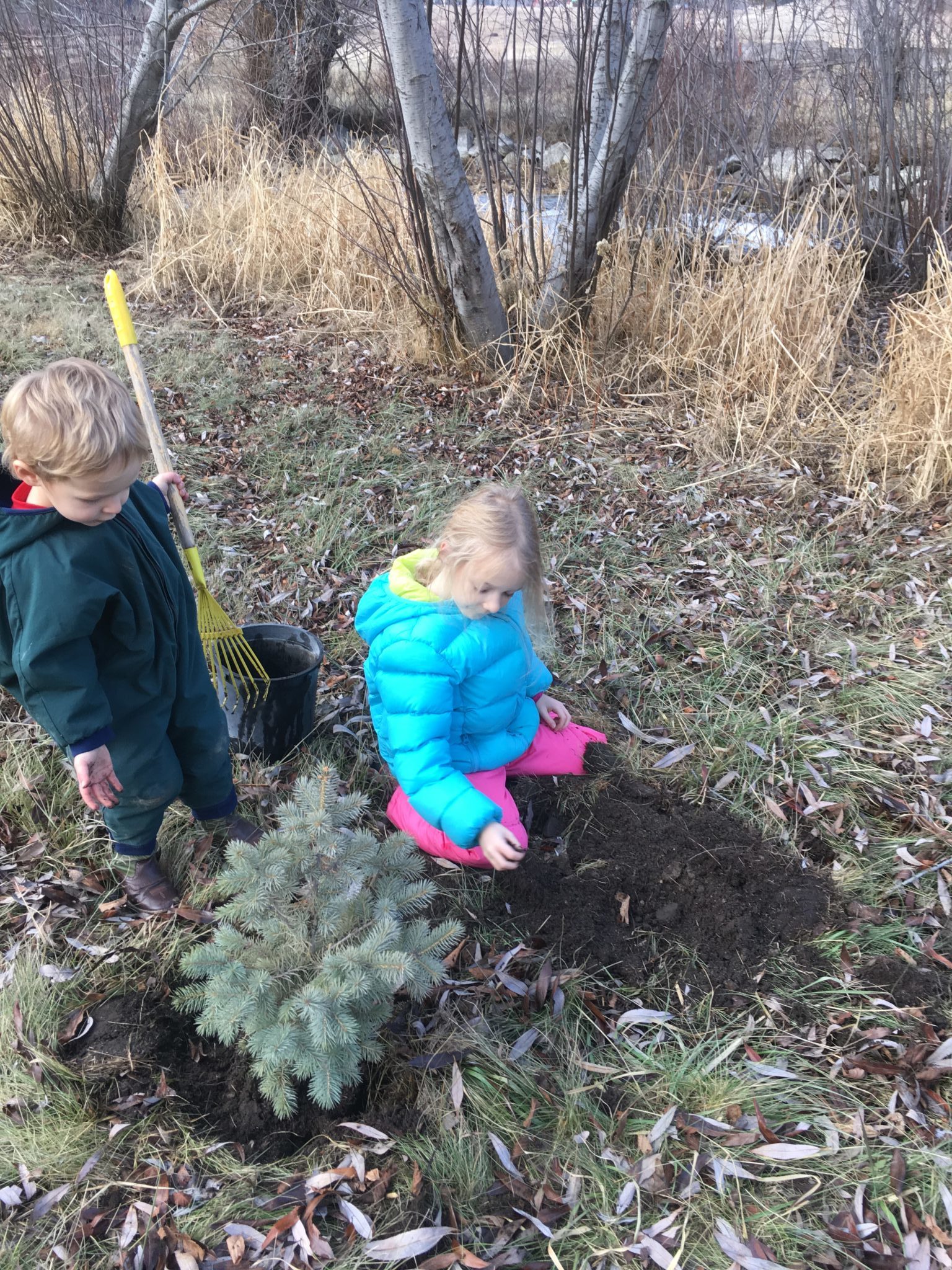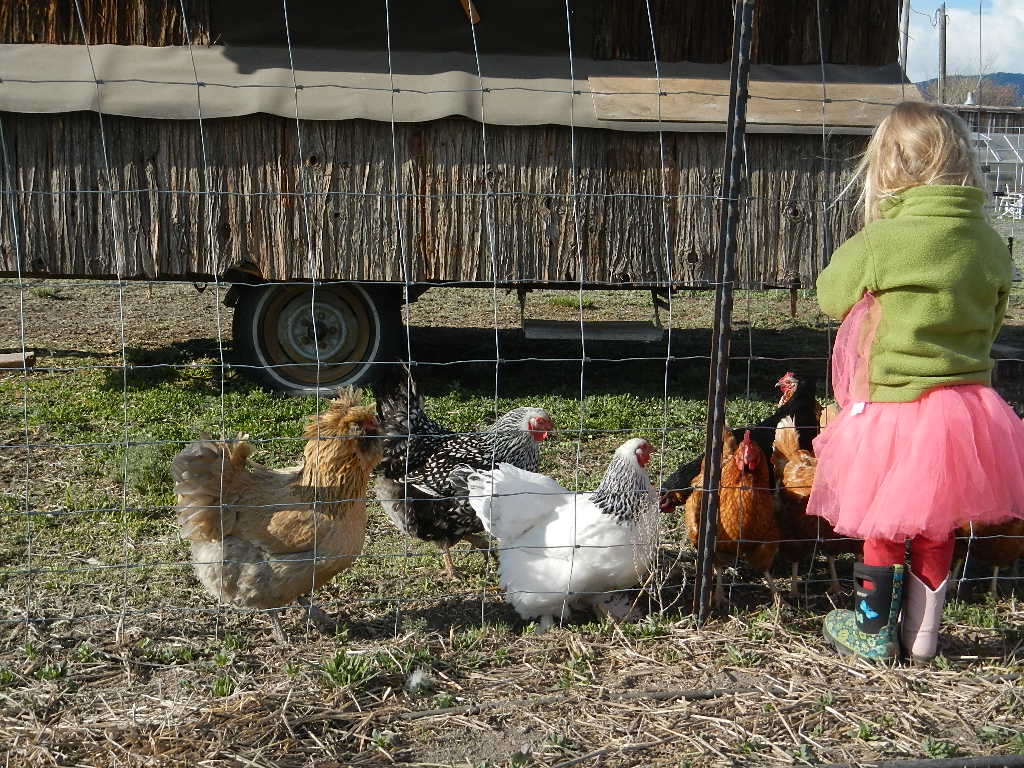Choosing the right projects, chores for homesteading kids
When you live off your land, there’s much to do and everyone needs to pitch in. Here’s how to choose the right projects and chores for your homesteading kids.

The garden needs to be weeded and watered. The chickens need to be fed. There’s butter to churn, and bread to bake.
When the to-do list seems a mile long, it’s easy for parents to shoo away their children so they can complete chores as efficiently as possible. Yet homesteaders around the country caution against this tactic.
Involving children in day-to-day tasks and projects on a homestead, they said, is important and rewarding in many ways.
“Just slow down, even if it means you get less done,” said Carolyn Thomas, who lives on a homestead in North Idaho with her husband Josh Thomas and their nine children, ages 1 to 13 years old.
Authors of the successful Homesteading Family blog and Homesteading Family YouTube channel, Carolyn and Josh Thomas live on a 40-acre farm. They raise livestock for meat and dairy products, and they grow almost all of the vegetables, fruit and natural medicines they consume, as well. Through their writing and videos, they share with the public all they’ve learned — and continue to learn — about living more sustainably and closer to the land while raising a large family.
“We’re cultivating a culture in which everyone contributes,” Josh Thomas said. “We all have a role to play. We’re all helping each other. When we have a meal, we’re thankful to the person who cooked, but also to the person who collected the eggs and milked the cow or fed the sheep.”
In the Thomas household, helping with home chores starts at a young age with a simple task: sorting and putting away the clean silverware. And as the children grow older, they’re trusted with more complex and important jobs, such as collecting eggs, milking cows and growing vegetables.
There isn’t any set age a person has to be for these more complex chores. Instead, they evaluate each child’s ability to follow directions and handle tools on an individual basis. They also consider each child’s interests. While one may be fond of caring for the chickens, another may be more interested in planting medicinal herbs and cut flowers.
“It’s really important to let them see themselves maturing and going up the ladder and not feel they’re just stuck raking out the chicken coop the rest of their lives,” said Carolyn Thomas. “We oversee it as a parent to make sure that a week or month into a chore, when they’re using a tool, they aren’t being careless. We keep an eye on them while not trying to limit them unnecessarily.”
Grow things together
When your toddler is uprooting your pole beans, allowing your child to participate in gardening can seem like a bad idea, but the Thomas family came up with a solution. When their first child, Tristan, turned 3 years old, they assigned him a specific area in their garden where he could dig for worms, pull up plants and scatter seeds. Meanwhile, they tended the crops nearby. And in time, Tristan learned to cultivate plants of his own.
“It has become a tradition,” said Josh Thomas. “Each [of our children] start with a 3-by-3-foot square, their own little patch that they can go whatever they want with.”
“We give them full control of it, including picking out some seeds in the catalogue and getting to choose when to water and weed,” Carolyn Thomas added. “We’ve almost turned it into a little game. If they want a larger patch next year, they have to show they can take care of it this year.”

Hundreds of miles away, this strategy of designating a garden space for children is also used by Annie Bernauer, author of the popular blog “Montana Homesteader.” In her garden, she creates a kids’ area, where her two children can grow whatever they want.
“Also, we have some antique wheelbarrows we use as planters, and my daughter has one she’s been planting for several years,” said Bernauer, whose daughter is now 7 years old. “It’s such a wonderful thing for her. Every year, she picks the plants, plants them and waters them.”
In her blog, Bernauer offers tips for gardening with small children, which include keeping a stash of toys by the garden and allowing children to help pull weeds as they get older and learn to differentiate between plants. Bernauer said she was surprised at how quickly her daughter has learned how to tend their gardens, and how now, at 7 years old, she’s started saving and drying seeds from vegetables and fruits throughout the year so she can plant them in her garden in the spring.
“Sometimes gardening with kids can be frustrating,” Bernauer said. “It can take a little longer. But it’s so important to teach them and help them because they’re the next generation of homesteaders. They need to learn these skills.”
Growing trees is another great activity to kids, said Jenna Smith of Shady Pines Homestead in north central Arkansas. She estimates that she and her husband have planted about 100 trees on their property in the Ozarks with their 3-year-old son, Neo.
“He helps, and he doesn’t even like using a plastic shovel,” Smith said. “He has his own awl and shovel, his own supplies. No toys for him.”
Animals make great teachers
Caring for animals can help teach children greater compassion for living creatures, as well as foster an understanding about where food comes from. And as children grow older, working with livestock can also lead to thinking about more complex topics, like life cycles and biological processes. But perhaps most importantly, working with animals is fun, and there are plenty of animal-related chores that are easy enough for even the youngest homesteaders.
“Since my son was about 2 years old, we’ve let him collect eggs,” said Smith. “I think it’s really good, especially for teaching him how to be gentle and careful with things. Then again, if an egg breaks, it’s not like he’s breaking glass or something and it’s the end of the world.”
“He’s been there as they’ve hatched out of eggs, so he knows where chickens come from,” she added. “He knows that we eat the eggs, too. I think it’s a good all-around life lesson.”
When working with chickens, it’s important to teach children not to put their hands in their mouth or rub their eyes, said Lisa Steele, author of “101 Chicken Keeping Hacks” and other poultry-related books. “ Chickens can carry salmonella, even if they appear clean and healthy, and that bacteria can be easily transferred to people by touch, causing illness. However, if strict about washing your hands after handling chickens, Steele said that chicken coop chores are great for kids.
“[Young children] can scatter grains for the chickens and bring them kitchen or garden leftovers,” Steele said. “Older kids can fill waterers and feeders, haul bales of straw for bedding and rake out the coop. Locking up the coop at night should be a job for teens or older since one misstep, and the predators win.”
Another good chore for older kids is milking, according to the Thomas family.
“The kids get very attached to the cow and learning to take care of the animal,” said Josh Thomas. “They also develop a pride in the milk that goes onto the breakfast table. They see the value in it.”
Modeling the right attitude is key

Over the years, Josh and Carolyn Thomas have learned that while toddlers are excited about helping with just about any task on the farm, children can sometimes resist the idea of “work” as they get older. To steer clear of this mentality, Carolyn and Josh Thomas have a few strategies.
“You really have to model the right attitude,” said Carolyn Thomas. “If, as a parent, we’re walking around grumbling about all the chores we have to do, that’s so contagious and infectious and the kids will catch that so quickly. Focusing on the positive with our own actions and speech is really important.”
In addition, on the Thomas homestead, no one person is saddled with the thankless job of nagging everyone else to complete their chores, and that’s because they’ve established a schedule and solid expectations for everyone in the family.
“Most chores come directly before meal times. That way, it’s a family rule that’s pretty much without exception that you do your chores before you eat,” Carolyn Thomas said. “It’s not me saying, ‘Did you do your chores?’ Rather it’s, ‘Man, you’re going to miss breakfast. You better hurry up and get it done.’ All the sudden, it’s the schedule that becomes the taskmaster, not the parent.”
While allowing children to take ownership of chores and projects on a homestead may actually result in more work sometimes, especially when the children are young, the Thomas’s believe that keeping the entire family involved is key to running a successful homestead. Not only does the work teach their children lessons and skills, it forges lasting memories.
“It’s so easy to send them out of the kitchen because they’re going to make a mess and you need to get something done, but slowing down and involving them at a young age makes it a lot more about time spent with somebody else,” Carolyn Thomas said. “It helps them to cultivate the desire to work with people and I think that’s really at the heart of what we do here.”

My children are grown. I would have enjoyed these tips then. I enjoyed the article.
Thanks, Just Stewart!
Great article! Enjoyed reading all the different ways young children can help out around a homestead and have some fun while doing so.
Thanks, Zabeth! It was a fun one to write. 🙂
This is great! Such encouragement especially about attitudes!
Hey Lizzy! I loved that bit of advice, too. It’s something we can all apply to our lives whether we’re homesteading or not.
Great advice! I plan on using it to get my almost 3 yr old twins excited about helping out around the house. Thank you!
That’s great, Rebecca! I’d be interested to hear what chores/projects they like best!
Awesome strategies good for any parent whether you’re a homesteader or an urban dweller.
I agree, Vicki! Thanks for the feedback!
Loved your article. Any advice on how to get rid of thistles? We put down straw several years ago to control weeds and keep moisture in the ground. Put it down when it was getting dark. Felt prickly, but didn’t realize there were thistles in it.
Hey Barbara! Oh no! I have talked with a number of conservationists about their struggles with invasive plants, but I’m no expert on the topic. I think it’s a wonderful idea for a story — ways to get rid of invasives. I’ll put it on my story list!
Enjoyed very much, what great idea for any & every family living any and everywhere, Thanks! 🙂
Thank you, Linda! I agree. 🙂 These families gave some wonderful advice.
What you are instilling in your children is of great value. The sense that a family works, support, and encourage each other.
As Carolyn said, they are the future whether it’s homesteading or in a city life. They are learning about life values, things not to be done only if it’s fun but because there’s a need. They are included as part of a great plan. Strength and courage of character will be seen in your children.
How great it is that each child learns to discover his (her) likes and dislikes and are encouraged to develop their own thoughts e.g. their little garden. What a privilege to observe them to that degree and see their gifts develop. They are learning to not stop if things don’t work as well as they had hoped especially for the older kids. Good job parents. Your future reward and society’s is children who have grown to be adults of great characters, a strong contributors to make a better world.
Thank you!
Hi Claudette! Thank you for your thoughtful and encouraging feedback!
As my Sons are grown and I have Grands and Great Grands. We gardened as a family, house chores too, At the appropriate age they learned to do everything when it came to being self sufficient. I didn’t want sons to get married just to have a house keeper. This may seem old fashion to some people but I sure am glad I did.. One little example — My youngest Son needed to teach his wife how to cook.–
One thing that I get a heart felt smile is when one of them will call to get a special recipe they wanted to cook
When the Grandchildren come to visit they will all pitch in with the chores.
Hi Page. I think that being “old fashioned” is often a good thing. 😉 Thank you for sharing your story.
My Mom taught us. The garden, milking the cows,collecting the eggs, except……….
Thank you for this article because it’s really informative, I love reading your article. Thank you so much for this post.